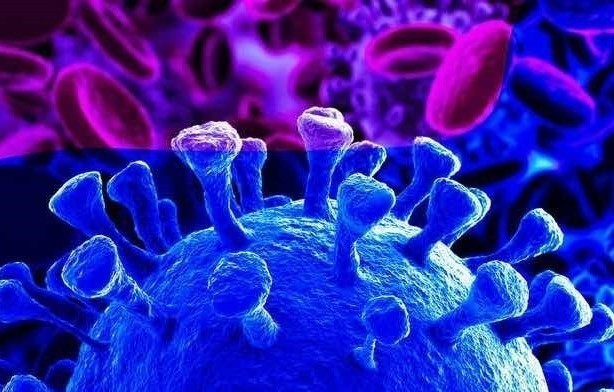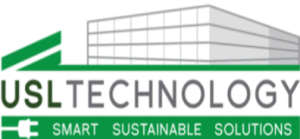
These are unusual and trying times. COVID-19 (the “Coronavirus”) pandemic first appeared in Wuhan, China in December 2019. Since then, approximately 3,990 individuals have died as a result of the virus and over 113,766 people have been infected world-wide.
According to the New York Times, “Deaths in the U.S. pass 100 as the coronavirus reaches all 50 states” and that most of those who have died from the virus have been in their 60s or older, and several have been in their 90s. But other patients who died have been younger, including a corrections worker in New York City in his 50s and a man from the Seattle area in his 40s.
Our home state New York State now has more than 1,500 Cases, and on Wednesday, March 18, 2020, Governor Cuomo says U.S. Army Corps of Engineers are coming.
These numbers continue to rise each day globally.
Similarly, to SARS, MERS, and EBOLA, COVID-19 shows that a wide range of health challenges strongly affect social and economic development. We are seeing drastic concerns of economic and financial impacts of COVID-19 on the livelihood of our families, our communities, our first responders who are bravely on the front lines; and survivability of our business in both near and long-term.
However, this pandemic shows our humanity and that our society can pull and band together in such unprecedented time for our common good to protect and save lives. The unprecedented challenges brought about by COVID-19, may as well bring new opportunities for us to see more clearly the values that join us and ensure our good health and well-being as individuals, as families and as communities even across our physical separation.
In the short term, as we follow the urgent message from the World Health Organization (WHO) to practice “Social Distancing” where we maintain 6 feet between you and other people in the hope of substantially reducing the spread of COVID-19, businesses are also taking the step enable and allow their workforce to work from home.
We at USL have given our employees the direction to work remotely to minimize physical contact. As the situation continues to spread both in the U.S and worldwide, businesses are likely wondering how to address this evolving situation for their people. For countries that have not been impacted by the COVID-19, are most likely all experiencing its secondary effects: efforts to contain it that are shutting down travel, airports, restaurants, gatherings, schools, and businesses. And, despite our best efforts now, we’re aware that widespread illness and even loss of life are increasingly likely down the road.
Above all else, our thoughts are with those affected by the virus, particularly those who are sick. We wish them a speedy recovery, and we remain inspired by our medical workers, first responders, and others who are caring for people around the world.
One remarkable act of kindness to help its customers through this difficult time, in our opinion, is one of NYC’s utility company Consolidated Edison of NY, who recently emailed customers with this statement:
During this incredibly challenging time, we know you’re counting on your power. We are not expecting any interruptions of your service because of the coronavirus (Covid-19).
Please know you will not lose your power now because you’re having trouble making payments.
Meanwhile, stock and bonds are falling in tandem, and the market is crashing in anticipation of the economic havoc that’s coming. Evidently, both the pandemic and our collective evasive maneuvers, will continue to impact the financial markets in the near future. There is so much unknown about how this COVID-19 will impact our business, our teams and workforce. This includes an immediate assessment and understanding of financial losses and other critical needs to help inform early response intervention priorities and longer-term strategies for businesses.
According to Bloomberg.com, here in the U.S, the Federal Government is discussing a plan that could amount to as much as $1.2 trillion in spending — including direct payments of $1,000 or more to Americans within two weeks — to blunt some of the economic impact of the widening coronavirus outbreak.
Mnuchin’s proposal included $300 billion for small business loans, $200 billion in stabilization funds, $250 billion in cash payments and a possible second round of checks, people familiar with the matter said. Including tax deferrals, that would bring the cost of the plan to around $1.2 trillion.
In New York City, according to Gothamist, “The closures of Broadway, entertainment venues, cultural institutions, bars and the limitation of restaurants to take-out only is expected to inflict great economic pain on a large cross-section of workers. The city is providing no-interest loans and cash grants to small businesses, in part to help them retain employment, but the pandemic is expected to last through the summer”.
Layoffs tied to the COVID-19 are starting, and a range of industries are bracing themselves for job cuts to come. “It’s simple math,” said Deborah Weinswig, founder of Coresight Research, an advisory and research firm that specializes in retail and technology. “You can’t have all expenses and no revenue.” As a small business,USL is not immune to social, economic and financial impacts that every other business is going through.
According to an article “ Layoffs, furloughs hit workforce” by Devin Banerjee, CFA; States are beginning to see an increase in applications for unemployment benefits. Rhode Island reported nearly 7,000 new unemployment claims on Monday, compared to 160 the week before. New York also said its labor department saw a 65% increase in calls over last week. The state’s website crashed due to the number of people trying to file claims. The U.S. government will report weekly data on Thursday.
We will get through this together. And we will continue to pull and band together in such unprecedented times for our common good to protect and save lives.
#SDG3, #sustainability #circulareconomy #wearestrongertogether #globalgoals #humanhgoal #resiliency #environentalsustaianbility #healthandwellbeing #worldtravel #onecitybuilttolast #80by50 #adaptation #socialdistancing #businesscontinuity #remotework #telecommuting
